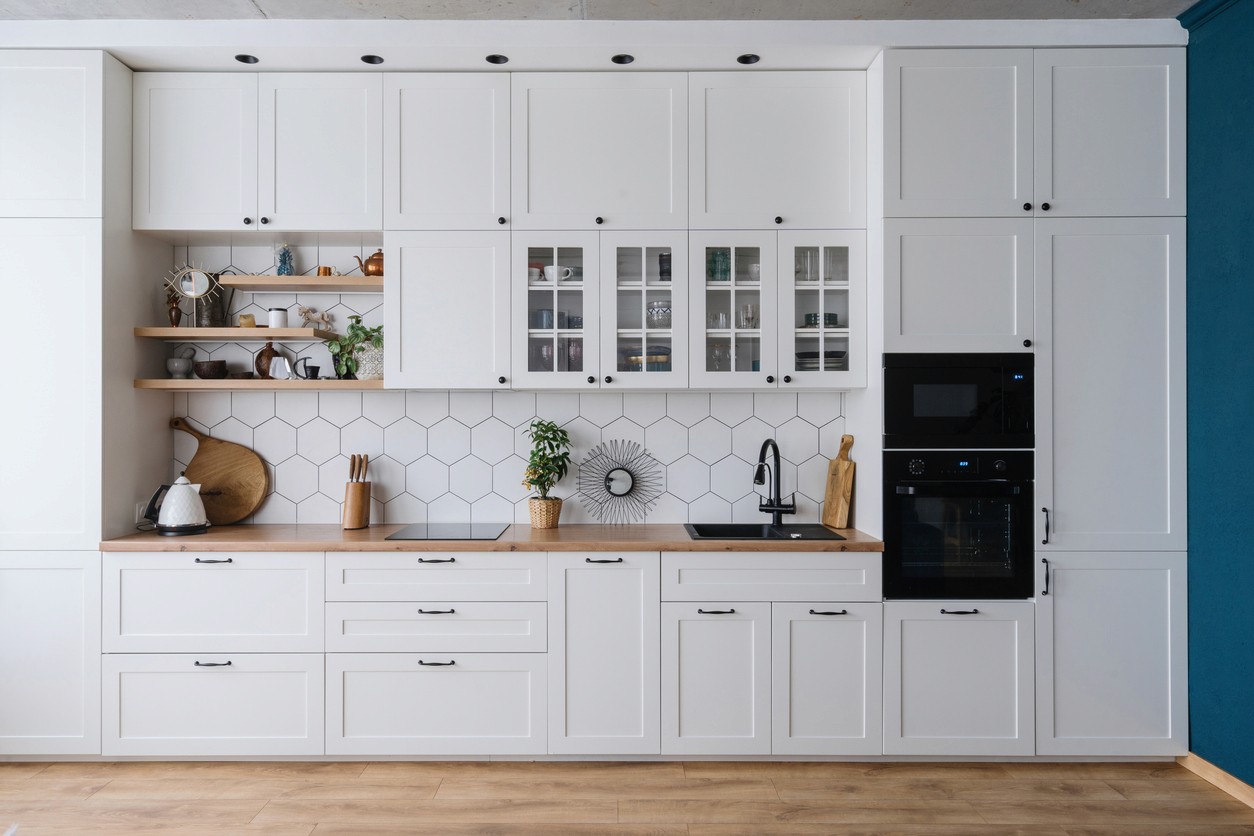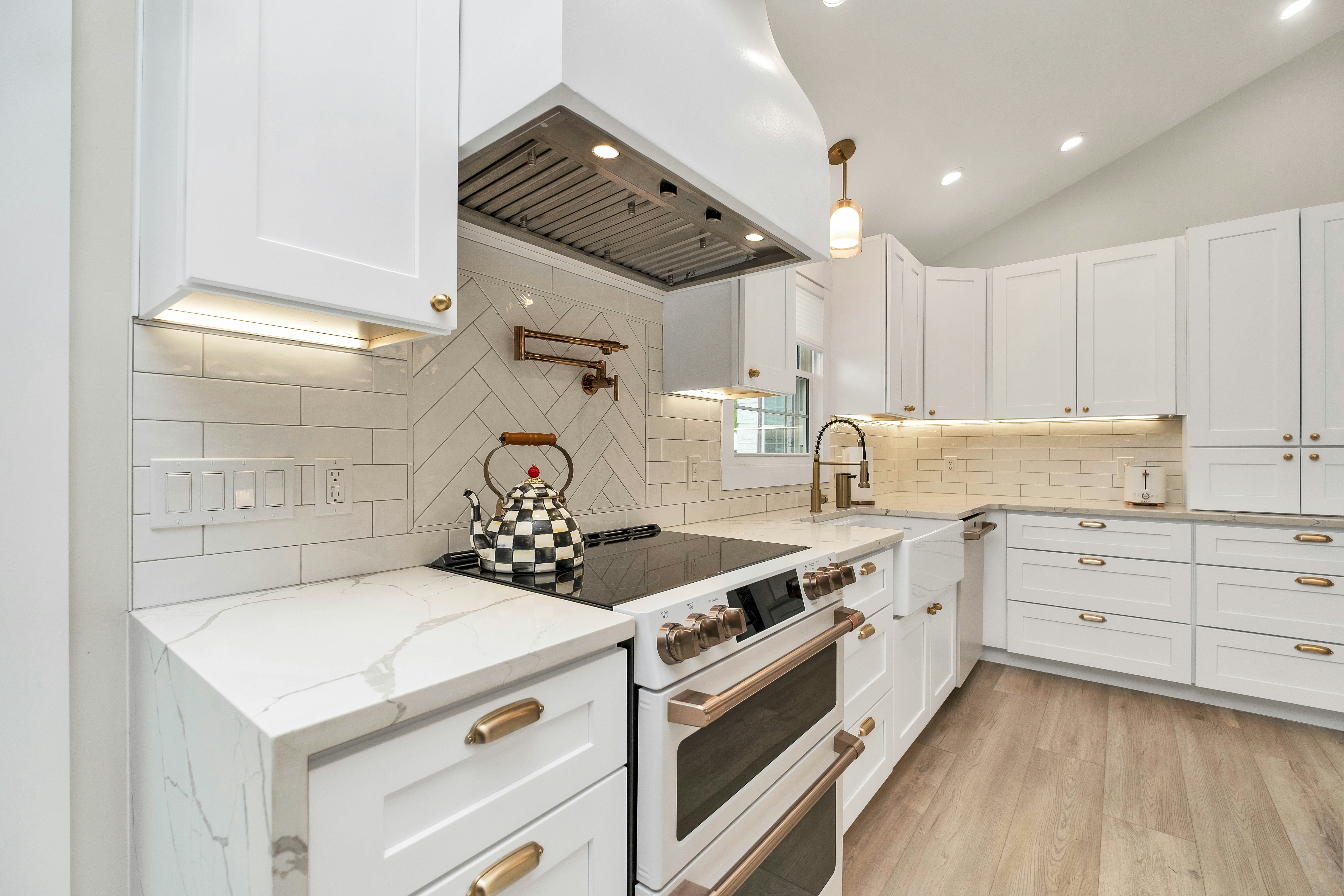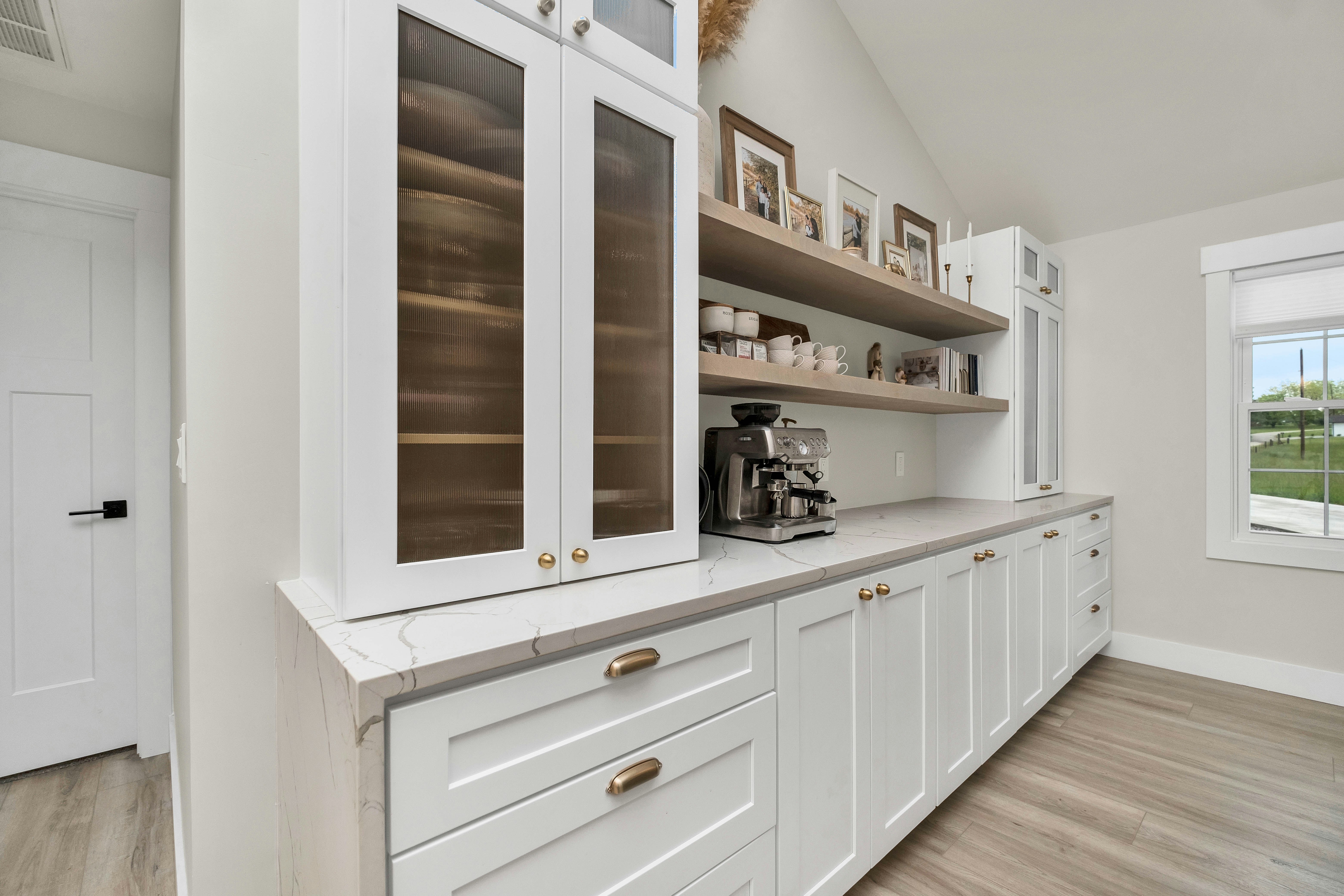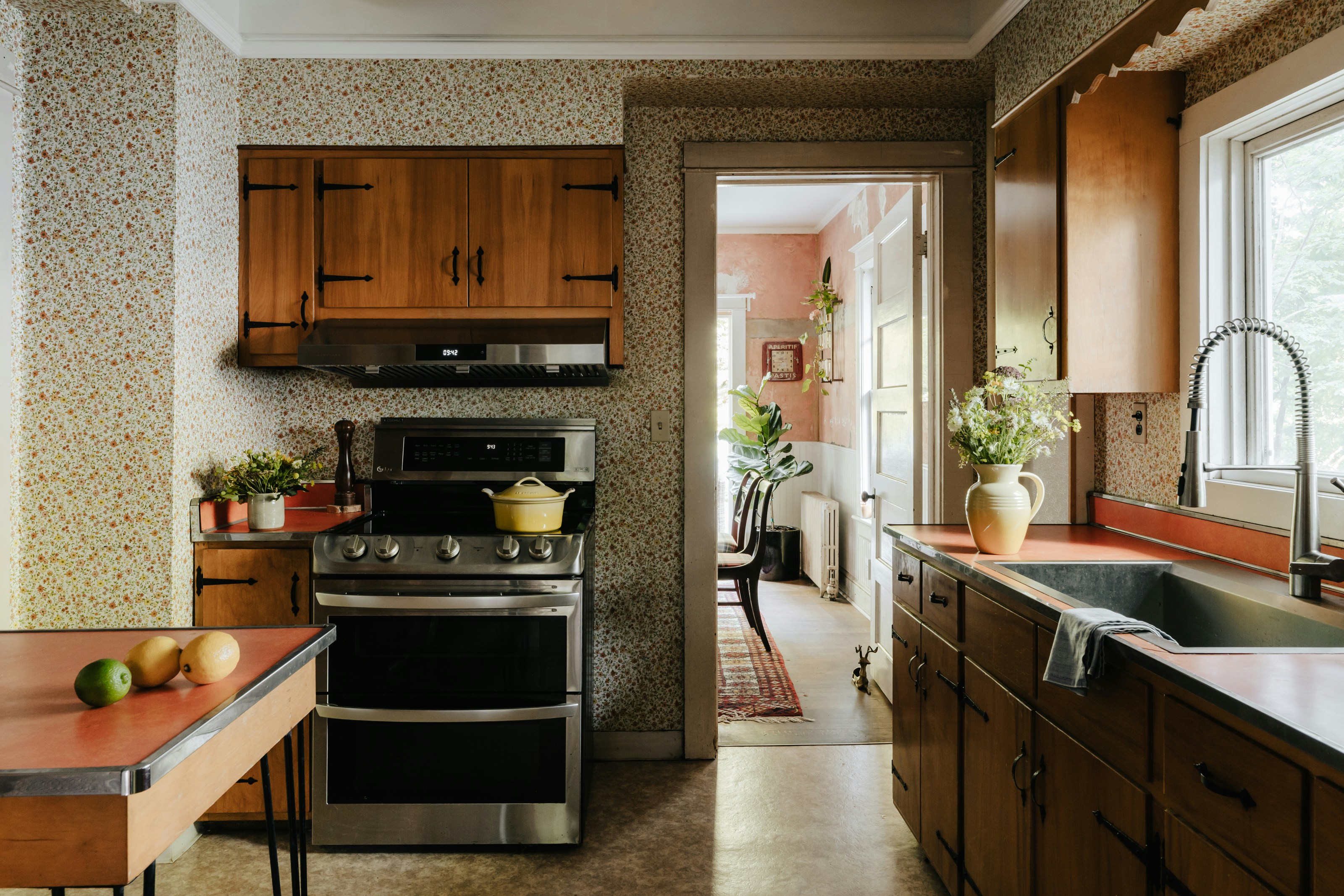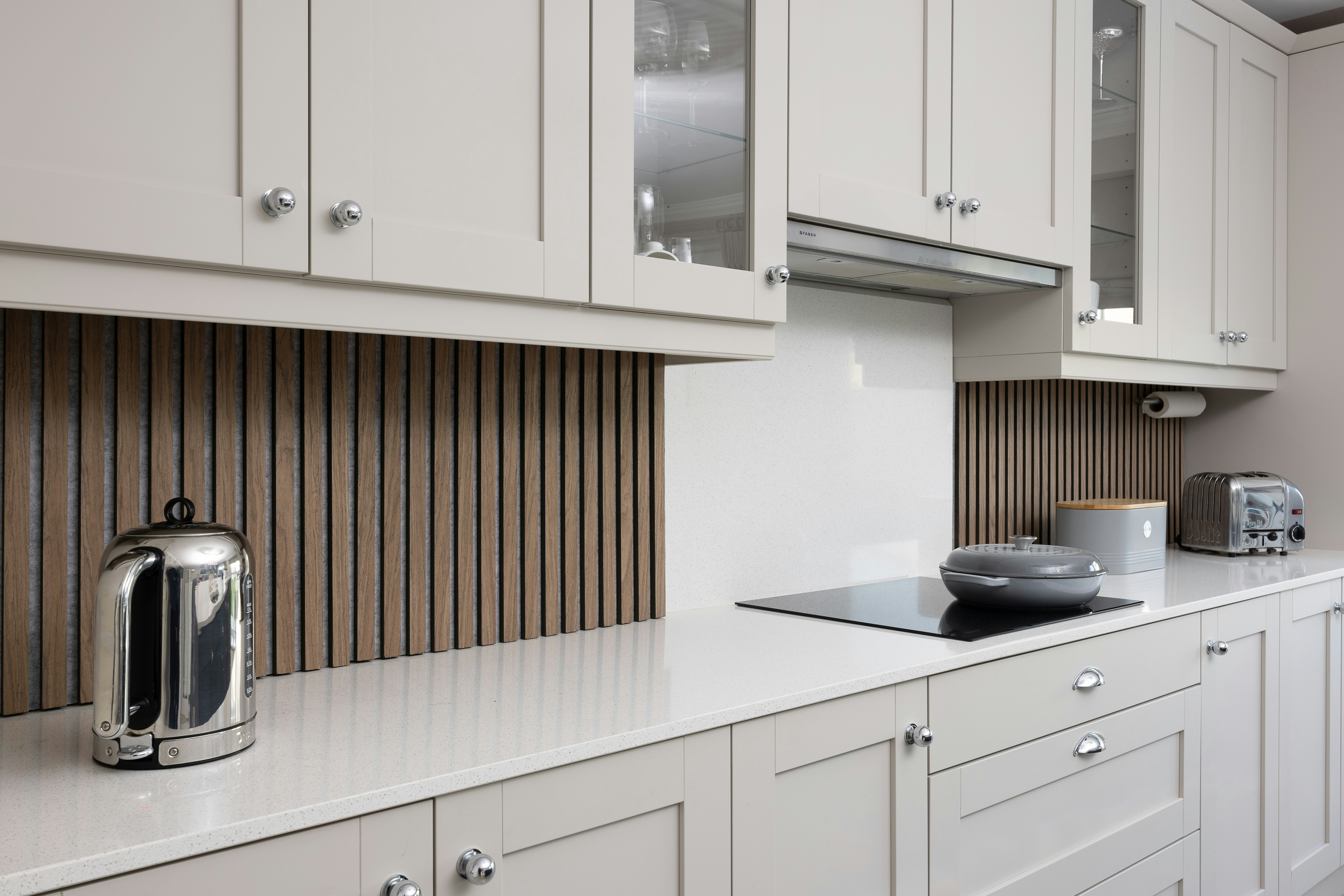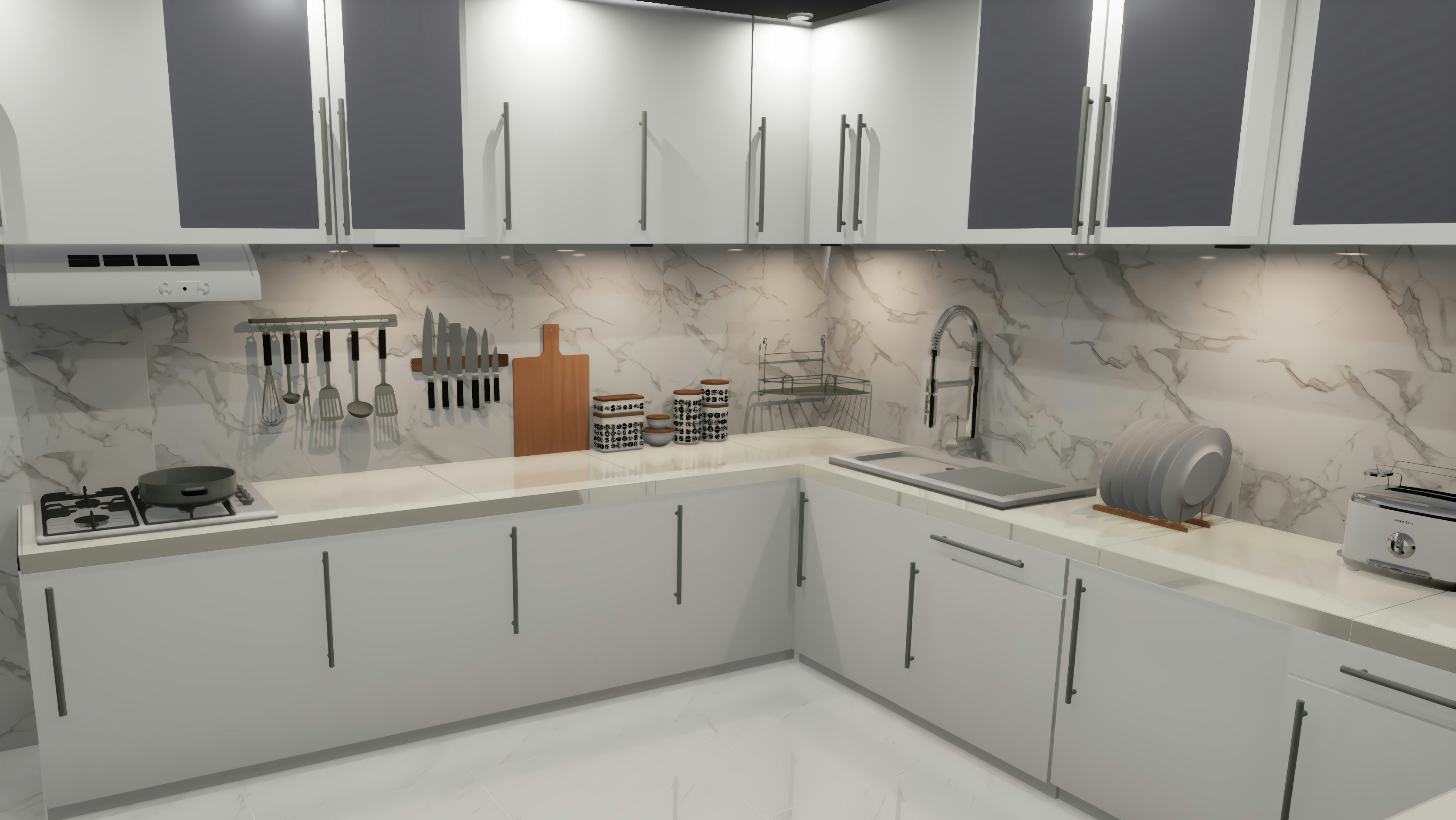How to Build Custom Kitchen Cabinets - Beginner's Guide
Many homeowners struggle to find the perfect kitchen cabinets that fit their unique space and style preferences. Building custom kitchen cabinets can be a cost-effective and gratifying solution. Interestingly, custom cabinets can be tailored to any kitchen layout, enhancing usability and aesthetics.
This step-by-step guide will ensure you achieve professional results even with basic tools. With patience and the right materials, you can create beautiful and functional cabinets for your kitchen.
How to Make Custom Kitchen Cabinets
Prepare the Tools and Materials Needed
Gathering all the necessary tools and materials before starting any project is essential. This ensures a smooth workflow without interruptions. Selecting high-quality materials for your kitchen cabinets will result in a durable and beautiful end product. Essential tools will suffice, but having specialized tools can significantly improve precision.
Here are the tools and materials you need:
Measuring tape
Sheets of plywood
Saw with a general-purpose blade
Pocket hole jigs
Solid wood panels
Plan Your Cabinet Dimensions
The first step in building kitchen cabinets is planning the dimensions. Typical base cabinets are 24 inches deep and 36 inches high, but custom measurements can be made to fit your space. Consider the exact height and depth needed for your base cabinets. Factor in any appliances or special features like a 5-inch deep spice cabinet. Precise measurements ensure a perfect fit in your kitchen.
Cut the Cabinet Pieces
Cut the sheets of plywood to the sizes needed for your cabinet pieces using a saw. Ensure all edges are smooth and free from splinters. Use a straight edge and a rip fence to keep your cuts precise. Cutting the plywood panels correctly is crucial for a clean assembly. Label each piece for easy identification.
Assemble the Cabinet Box
Assemble the cabinet box with the cut plywood panels. Use pocket hole screws and pilot holes to join the pieces together. Clamp the pieces until the glue dries for a stronghold. This assembly forms the carcass of your cabinet. Ensure the cabinet box is square and level before proceeding to the next step.
Attach the Cabinet Face Frame
The face frame adds strength and a finished look to the cabinet. Use pocket screws to attach the frame pieces to the cabinet box. Make sure the frame fits flush to the front of the cabinet. This process can be done using either solid wood or plywood for durability. Sand any rough edges for a smooth finish.
Install the Shelves and Dividers
Install adjustable shelves using shelf pin holes for storage flexibility. Vertical dividers can be added for more organized space. Use pilot holes and pocket screws to secure them in place. Make sure the shelves are level and sturdy. Custom cabinet shelves provide tailored storage solutions for your kitchen.
How to Finish and Install Custom Kitchen Cabinets
Applying Edge Banding
Edge banding gives the plywood edges a finished look. Iron-on-edge banding is a popular method for this application. Trim the excess with a utility blade for clean edges. Use a sanding block to smooth any rough edges. This step enhances the overall appearance of your cabinets.
Attaching Cabinet Doors and Drawer Fronts
Choose between overlay cabinet doors or inset hinges based on your design. Use European hinges for a sleek, modern look. Attach drawer fronts using pilot holes and screws. Ensure all doors and drawers align properly. This process allows for a functional and visually appealing cabinet.
Adding Crown Molding
Crown molding adds a decorative element to your cabinets. Attach it using brad nails and wood glue. Ensure it fits snugly against uneven walls. Larger crown pieces can be used for a grander look. Consider alternatives to crown molding if you prefer a more straightforward design.
Installing Drawer Slides and Drawer Pulls
Drawer slides allow for the smooth operation of your drawers. Attach them to the drawer box and the cabinet carcass. Use a level to ensure they are even. Add drawer pulls for functionality and style. Choose hardware that complements your kitchen design.
Finishing Touches
Fill any nail holes with wood filler and sand smooth. Paint or stain your cabinets for a desired finish. Seal with a clear coat to protect the wood. Install shelf support holes if needed. These finishing touches add to the durability and appeal of your cabinets.
Installing the Cabinets
Secure your cabinets to the wall studs using screws. Use shims to ensure they are level and plumb. Attach base cabinets first, followed by upper cabinets. Ensure all cabinets align for a cohesive look. Installation is a critical step in your kitchen remodel.
How to Maintain Your Custom Kitchen Cabinets
Regular Cleaning
Repairs and Touch-Ups
Address any minor damages promptly. Use touch-up paint or stain to fix scratches. Replace any broken hardware. Re-tighten loose screws to ensure stability. Minor repairs can extend the life of your cabinets.
Preventing Damage
Use coasters and placemats to protect your cabinets from heat and moisture. Avoid overloading shelves and drawers. Install bumpers on doors to prevent slamming. Regularly check for signs of wear and tear. Preventive measures help maintain the quality of your cabinets.
Updating Hardware
Changing hardware can give your cabinets a fresh look. Choose new drawer pulls and hinges to update the style. Ensure the new hardware matches the current drill holes. Consider soft-close hinges for a modern touch. This update is a simple way to refresh your kitchen.
Refinishing Cabinets
If your cabinets show signs of aging, refinishing can restore their beauty. Sand down the old finish and apply a new coat of paint or stain. Seal with a clear coat for protection. This process can make old cabinets look brand new. Refinishing is an effective way to update your kitchen.
Seasonal Maintenance
Inspect your cabinets seasonally for any issues. Check for signs of moisture damage during humid months. Oil the wood in dry seasons to prevent cracking. Regular maintenance ensures longevity. Seasonal care keeps your cabinets in top shape.
Build Your Custom Kitchen Cabinets With Collaborative Kitchen & Design Center Today
Custom kitchen cabinets can transform your kitchen into a personalized and functional space. We hope this guide has given you the confidence to start your project. At Collaborative Kitchen & Design, we provide expert advice and a comprehensive design process to help bring your dream kitchen to life. Our high-quality products and attention to detail ensure your kitchen looks stunning and meets all your needs. Let us be your partner in transforming your kitchen into a masterpiece.
Ready to build your custom kitchen cabinets? Contact Collaborative Kitchen & Design today to start your kitchen remodel. Our team is here to assist you with every step of the process, ensuring your vision becomes a reality.

